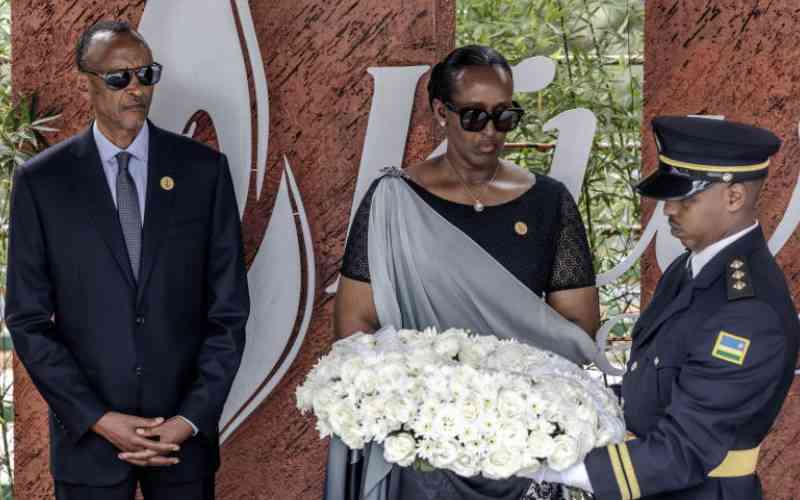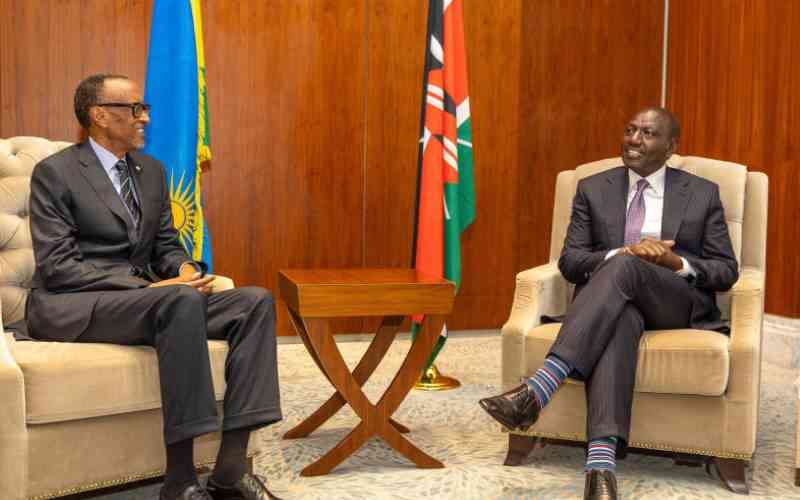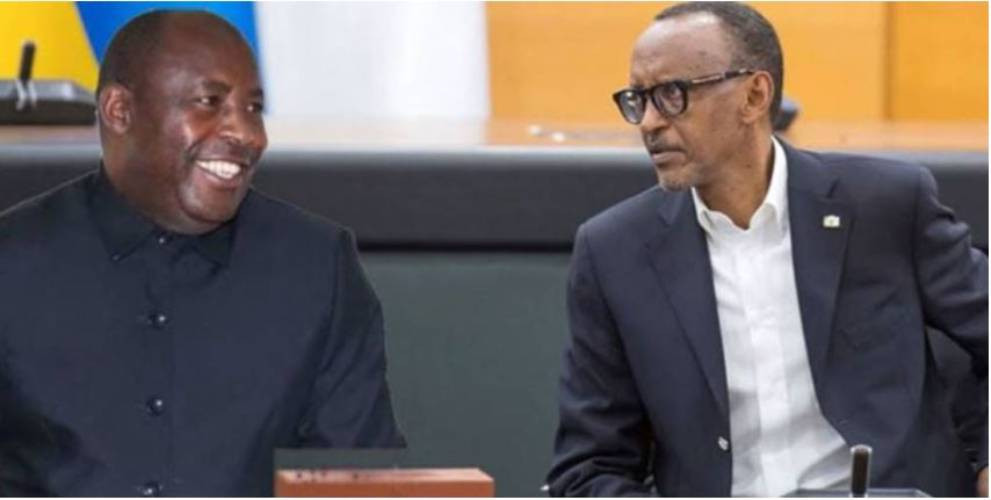Obsession with power is doing African leaders no good. Even before the dust settles on the disastrous antics of Burundi’s President Pierre Nkurunziza whose determination to cling to power against all the odds has left his tiny country awash with blood, Congo Republic’s Dennis Sassou Nguesso and Rwanda’s Paul Kagame are perched on roof tops shouting for the extension of their terms.
Their echo has been covertly but determinedly picked by Democratic Republic of Congo’s Joseph Kabila alias Kabila Kabange who faces elections in 2016 but has his eyes trained on a nebulous third term.
The trio forget that however good a leader is, nothing lasts forever and nothing is more rewarding than exiting the scene at one’s peak. Nelson Mandela did so and lived gracefully till his death at the ripe age of 95.
Nonagenarian Robert Mugabe would have left a plum legacy had he done the same, instead of hobbling on well into his nineties. Remember how he manoeuvred his way back to the saddle after perpetual challenger Morgan Tsvangirai dealt him a body blow in the March 29,2008 general elections? Mugabe’s prolonged stay on the throne in Harare has done Zimbabwe more harm than good. Its contaminating effects are manifest in Uganda where Yoweri Museveni, in 2011, successfully spearheaded a campaign to change the constitution to remove term limits.
Determined to continue lording it over the people of Burkina Faso after 27 years since yanking power from Thomas Sankara and killing him, President Blaise Compaore flunked and fled his country on October 31, 2014.
His failure to hold on to power was celebrated by masses across the continent, but moaned by like-minded African leaders.
It is courtesy of insatiable thirst for power that former Ivorian President Laurent Gbagbo is cooling his heels at the International Criminal Court at The Hague as he is tried for crimes against humanity.
Other than cede power peacefully after a defeat by Alasane Ouattara, Gbagbo held on as people fought and died around him and his wife, Simone, until both were pulled out of a bunker months later.
Gbagbo was a big African man indeed from what I witnessed while on a brief sojourn in the principal Ivorian city, Abidjan in August, 2010, four months to the election that spelt his waterloo.
I was attending a UNESCO conference and I remember how we eagerly waited for the conference to be officially opened by President Gbagbo, only for word to come at the last minute that the president was too busy to leave his palace, but had agreed to receive conference leaders only. The rest of us had to remain behind.
The sweet power had turned extremely bitter by April 2011 when photographs of a disheveled and confused Gbagbo alongside his wife Simone with hair uprooted from her head were splashed all over the world. The couple, frightened and drenched in ignominy, could do nothing but plead for dear life.
Remember Libyan strongman Muammar Gaddafi pleading with a young gunman not to shoot him after he was pulled out of a tunnel during his country’s bloody revolution? He had led oil-rich Libya as a family affair with an iron fist for 42 years to considerable prosperity, but the people were tired of his one-man rule and hankered for a change.
Gaddafi’s visits were awe-binding affairs for ordinary citizens because of the kind of the inconveniencing security arrangements they generated. Not only was he powerful, but power literally oscillated around him.
I was caught up in the web of Gaddafi’s immense power in 2008 in the Malian capital, Bamako where I had gone to receive the Akintola Fatoyinbo African Education Award. Gaddafi and his huge entourage inclusive of beautiful but fierce-eyed bodyguards were in town and as fate would have it, he was to fly out the same afternoon with me.
The traffic gridlock began long before his departure time and all the roads leading to the international airport were closed. There was no movement by the time we left our hotel in downtown Bamako in a van in time to catch our Kenya Airways flight.
Stay informed. Subscribe to our newsletter
We had moved less than a kilometre from the hotel by the time the KQ flight landed from Dakar to pick Nairobi-bound passengers. Terribly distraught, we could only watch from our van as the plane took off about 40 minutes later. I cursed! Gaddafi had caused us to miss our flight.
We had no option but to drive back to the hotel to wait for the next flight the following day at an extra cost. I marvelled at how drastically human destiny can change when a helpless Gaddafi, all his worldly power deflated, was fished from a filthy tunnel in Libya, a country he had led for 42 years and his life trashed like that of a petty criminal.
 The Standard Group Plc is a
multi-media organization with investments in media platforms spanning newspaper
print operations, television, radio broadcasting, digital and online services. The
Standard Group is recognized as a leading multi-media house in Kenya with a key
influence in matters of national and international interest.
The Standard Group Plc is a
multi-media organization with investments in media platforms spanning newspaper
print operations, television, radio broadcasting, digital and online services. The
Standard Group is recognized as a leading multi-media house in Kenya with a key
influence in matters of national and international interest.
 The Standard Group Plc is a
multi-media organization with investments in media platforms spanning newspaper
print operations, television, radio broadcasting, digital and online services. The
Standard Group is recognized as a leading multi-media house in Kenya with a key
influence in matters of national and international interest.
The Standard Group Plc is a
multi-media organization with investments in media platforms spanning newspaper
print operations, television, radio broadcasting, digital and online services. The
Standard Group is recognized as a leading multi-media house in Kenya with a key
influence in matters of national and international interest.









